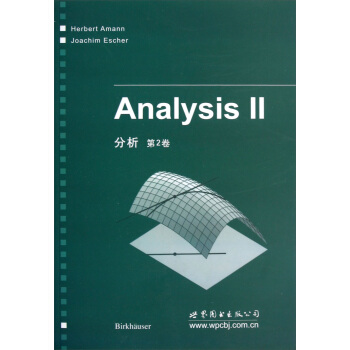

具体描述
内容简介
As with the first, the second volume contains substantially more material than can be covered in a one-semester course. Such courses may omit many beautiful and well-grounded applications which connect broadly to many areas of mathematics.We of course hope that students will pursue this material independently; teachers may find it useful for undergraduate seminars.目录
ForewordChapter Ⅵ Integral calculus in one variable
1 Jump continuous functions
Staircase and jump continuous functions
A characterization of jump continuous functions
The Banach space of jump continuous functions
2 Continuous extensions
The extension of uniformly continuous functions
Bounded linear operators
The continuous extension of bounded linear operators
3 The Cauchy-Riemann Integral
The integral of staircase functions
The integral of jump continuous functions
Riemann sums
4 Properties of integrals
Integration of sequences of functions
The oriented integral
Positivity and monotony of integrals
Componentwise integration
The first fundamental theorem of calculus
The indefinite integral
The mean value theorem for integrals
5 The technique of integration
Variable substitution
Integration by parts
The integrals of rational functions
6 Sums and integrals
The Bernoulli numbers
Recursion formulas
The Bernoulli polynomials
The Euler-Maclaurin sum formula
Power sums
Asymptotic equivalence
The Biemann ζ function
The trapezoid rule
7 Fourier series
The L2 scalar product
Approximating in the quadratic mean
Orthonormal systems
Integrating periodic functions
Fourier coefficients
Classical Fourier series
Bessel's inequality
Complete orthonormal systems
Piecewise continuously differentiable functions
Uniform convergence
8 Improper integrals
Admissible functions
Improper integrals
The integral comparison test for series
Absolutely convergent integrals
The majorant criterion
9 The gamma function
Euler's integral representation
The gamma function on C(-N)
Gauss's representation formula
The reflection formula
The logarithmic convexity of the gamma function
Stirling's formula
The Euler beta integral
Chapter Ⅶ Multivariable differential calculus
1 Continuous linear maps
The completeness of/L(E, F)
Finite-dimensional Banach spaces
Matrix representations
The exponential map
Linear differential equations
Gronwall's lemma
The variation of constants formula
Determinants and eigenvalues
Fundamental matrices
Second order linear differential equations
Differentiability
The definition
The derivative
Directional derivatives
Partial derivatives
The Jacobi matrix
A differentiability criterion
The Riesz representation theorem
The gradient
Complex differentiability
Multivariable differentiation rules
Linearity
The chain rule
The product rule
The mean value theorem
The differentiability of limits of sequences of functions
Necessary condition for local extrema
Multilinear maps
Continuous multilinear maps
The canonical isomorphism
Symmetric multilinear maps
The derivative of multilinear maps
Higher derivatives
Definitions
Higher order partial derivatives
The chain rule
Taylor's formula
Functions of m variables
Sufficient criterion for local extrema
6 Nemytskii operators and the calculus of variations
Nemytskii operators
The continuity of Nemytskii operators
The differentiability of Nemytskii operators
The differentiability of parameter-dependent integrals
Variational problems
The Euler-Lagrange equation
Classical mechanics
7 Inverse maps
The derivative of the inverse of linear maps
The inverse function theorem
Diffeomorphisms
The solvability of nonlinear systems of equations
8 Implicit functions
Differentiable maps on product spaces
The implicit function theorem
Regular values
Ordinary differential equations
Separation of variables
Lipschitz continuity and uniqueness
The Picard-Lindelof theorem
9 Manifolds
Submanifolds of Rn
Graphs
The regular value theorem
The immersion theorem
Embeddings
Local charts and parametrizations
Change of charts
10 Tangents and normals
The tangential in Rn
The tangential space
Characterization of the tangential space
Differentiable maps
The differential and the gradient
Normals
Constrained extrema
Applications of Lagrange multipliers
Chapter Ⅷ Line integrals
1 Curves and their lengths
The total variation
Rectifiable paths
Differentiable curves
Rectifiable curves
2 Curves in Rn
Unit tangent vectors
Paramctrization by arc length
Oriented bases
The Frenet n-frame
Curvature of plane curves
Identifying lines and circles
Instantaneous circles along curves
The vector product
The curvature and torsion of space curves
3 Pfaff forms
Vector fields and Pfaff forms
The canonical basis
Exact forms and gradient fields
The Poincare lemma
Dual operators
Transformation rules
Modules
4 Line integrals
The definition
Elementary properties
The fundamental theorem of line integrals
Simply connected sets
The homotopy invariance of line integrals
5 Holomorphic functions
Complex line integrals
Holomorphism
The Cauchy integral theorem
The orientation of circles
The Cauchy integral formula
Analytic functions
Liouville's theorem
The Fresnel integral
The maximum principle
Harmonic functions
Goursat's theorem
The Weierstrass convergence theorem
6 Meromorphie functions
The Laurent expansion
Removable singularities
Isolated singularities
Simple poles
The winding number
The continuity of the winding number
The generalized Cauchy integral theorem
The residue theorem
Fourier integrals
References
Index
前言/序言
用户评价
这本书的封面设计就足够吸引我了,那种沉静而富有力量的蓝色,配上银色简约的标题,一眼看去就知道不是那种浮光掠影的快餐读物。翻开目录,我对作者的选题构思和逻辑编排产生了浓厚的兴趣。虽然还没有深入阅读,但我已经能感受到这是一部经过深思熟虑的作品。我尤其期待作者在某个具体案例的剖析上,能够展现出如何将抽象的理论转化为具体的分析工具,并且在实际应用中是如何体现出其价值的。书中的例子是否足够贴近现实生活,能否引发读者对自身周遭事物的思考,这是我非常看重的一点。毕竟,再精妙的理论,如果脱离了现实的土壤,也只能是空中楼阁。我希望能在这本书中找到一些启发,关于如何更系统、更深入地理解我所处的环境,以及如何在这个复杂的世界中做出更明智的判断。这本书给我一种“静水流深”的感觉,封面传递出的信息让我对内容充满了期待,仿佛预示着一场智慧的探索之旅即将展开,我迫不及待地想要一探究竟。
评分刚拿到这本书的时候,我就被它厚实的质感和精美的装帧所吸引。打开一看,里面的排版设计也非常舒适,字体大小适中,行间距合理,阅读起来不会有压迫感。更重要的是,作者的语言风格非常独特,既有学者严谨的学术态度,又不乏生活化的幽默感。他能够用一种非常接地气的方式来阐释一些看似高深的理论,让读者在轻松愉快的氛围中掌握知识。我尤其喜欢作者在文中穿插的一些个人经历和感悟,这些内容让这本书不仅仅是一本理论著作,更像是一位智者的娓娓道来,充满了人情味。我从中看到了作者的真诚和用心,感受到他对知识的热情和对读者的尊重。这本书给我带来的不仅仅是知识上的收获,更是一种精神上的慰藉和启发。它让我相信,学习可以是一件如此有趣和令人享受的事情。
评分这本书带给我的,是一种潜移默化的改变。它不是那种能够让你瞬间获得什么“乾坤大挪移”绝技的书,而更像是春雨无声,润物细无声。在阅读的过程中,我逐渐发现自己看待问题的方式发生了微妙的变化。我开始更加倾向于去探究事物背后的原因,去审视那些看似理所当然的假设。作者的引导,让我逐渐具备了一种批判性思维的能力,能够不轻易被表面的信息所迷惑。我尤其欣赏作者在处理复杂问题时所展现出的耐心和细致,他能够层层剥茧,将一个宏大的议题分解成若干个小的、可分析的部分。这种严谨的态度,也让我开始反思自己在日常生活中是否也能够做到如此细致地去观察和分析。总而言之,这本书是一部能够真正提升一个人思维品质的佳作,值得反复品读,并且在实践中不断体会其价值。
评分读这本书的过程,更像是在进行一场思维的拓展训练。作者的文字逻辑清晰,叙述流畅,没有丝毫的卖弄和故弄玄虚。即使是涉及一些比较复杂的概念,也能够通过生动的比喻和恰当的举例,让我这个初学者也能逐渐领悟其中的精髓。我特别欣赏作者在引导读者进行独立思考方面所做的努力,而不是仅仅灌输现成的结论。他似乎总是在抛出问题,引导我去探索答案,去审视那些习以为常的观念。这种互动式的阅读体验,让我感觉自己不仅仅是在被动接收信息,而是在积极参与到一场思想的对话中。我尤其对书中关于“如何识别偏见”和“如何构建有效的论证”的章节留下了深刻的印象。在信息爆炸的时代,能够拥有这样一双“锐利的眼睛”和一套“严谨的思维框架”,无疑是极其宝贵的财富。这本书让我意识到,分析能力不仅仅是关于“知道”什么,更是关于“如何思考”和“如何判断”。
评分坦白说,一开始我对这本书并没有抱有过高的期待,毕竟“分析”这个主题听起来有些枯燥。然而,当我真正沉浸其中后,我彻底被震撼了。作者的视角是如此的独特,他能够从一个全新的角度来审视我们司空见惯的现象,并且挖掘出其中隐藏的深层逻辑。他不仅仅是在教授分析的方法,更是在传授一种看待世界的方式。每一次阅读,都像是在为我的思维打开一扇新的窗户,让我看到之前从未留意过的风景。书中那些令人拍案叫绝的论述,那些精辟的洞察,让我不禁感叹作者的才华和智慧。我发现,这本书所包含的不仅仅是理论知识,更是一种思维的训练,一种对事物本质的探究。它让我学会了如何透过表象看本质,如何在一个纷繁复杂的世界里保持清醒的头脑。
评分导数不出现,直到301页,但当它介绍,它定义在条款的这东西到底是什么:一个线性近似。在大多数文本,这个观点并不是讨论直到“多元”分析覆盖。
评分构造函数p^2-2,然后曲线较好的切x轴的值值更靠近根号2 ,下面因该是p+p但是为了2式且不违提设可以任意取值,这个算是有迹可循的… 后面1.21构造出来式子才是天马行空数学就是这样子,想想那些世界级的数学难题,消耗几代人几十年几百年的生命去计算思考那些复杂的数学题,就显得微不足道了,数学-人类精神虐待! 大家帮我看下那道数学题怎么做其实我建议不要刷吉米,找一本卓里奇或者鲁丁,如果觉得这些难,找一本科大版的数分都可以,个人觉得还是要有一点数学品味的吉米的很多题还是可以,我主要是想练下多偏计算的。科大的数分我看了一下,更难,谢谢你的建议。都差不多吧。另外,刘玉涟的铺垫解说比较多,使初学者不感到突兀;张筑生的简洁清晰,把其他人书里的某些分开的东西融为一体,又把某些东西拆开讲,先体系后细节。因为本人理解能力并不是很强。。所以想找一本比较简单的。。不知是华师大版的数分比较简单呢,还是陈纪修版的简单,或者有更好的推荐嘛?
评分阿曼和埃舍尔的分析,第一卷连同第二和第三卷,组成了一个令人难以置信的丰富、全面、独立的对于高等的分析基础的处理。从集合论和实数的构建,作者继续引理、定理,定理证明的声明和斯托克的定理在最后一章的流形体积三世。
评分这种方法最初要求更多的读者和他的抽象能力,但在评审者的意见,是绝对的最好方法主体。我真的不知道什么是真正的初学者在数学也能想出来但替代方法是定义事物反复在越来越通用上下文最分析文本做。
评分这套书给人的感觉有点不上不下。具体来说,作者(基本上是)打算避开集合论公理和数理逻辑,但又花了十几页的功夫去描述这两个东西,而且还是在避免使用符号语言的情况下,使用自然语言来说明的.......嘛,因为原文是德文,说明上应该会比这英译本的要严格一些,但是这英译本就......举个例子来讲,英译本中一会儿用英语“and”来表示逻辑符号里的"AND",一会儿又用“and”来表示逻辑符号里的"INCLUSIVE OR"。都无语了......
评分作者的典型风格,因为他们承认在他们的前言,是定义数学对象和概念在最一般的方式。他们,然后通过这些定义的后果。考虑一个特定的例子,这种方法,社区的定义提出了三世的连续性。1,一个函数(定义度量空间之间)是连续在x如果每个社区V f(x)存在一个这样的社区你x f(U)包含在诉随后,证明这是相当于两个传统的ε三角洲定义和连续性的情况定义在条款的收敛序列。作者也表明连续性所以定义也同样适用于一个赋范矢量空间(因为每个赋范矢量空间也是一个度量空间)。
评分作者的典型风格,因为他们承认在他们的前言,是定义数学对象和概念在最一般的方式。他们,然后通过这些定义的后果。考虑一个特定的例子,这种方法,社区的定义提出了三世的连续性。1,一个函数(定义度量空间之间)是连续在x如果每个社区V f(x)存在一个这样的社区你x f(U)包含在诉随后,证明这是相当于两个传统的ε三角洲定义和连续性的情况定义在条款的收敛序列。作者也表明连续性所以定义也同样适用于一个赋范矢量空间(因为每个赋范矢量空间也是一个度量空间)。
评分构造函数p^2-2,然后曲线较好的切x轴的值值更靠近根号2 ,下面因该是p+p但是为了2式且不违提设可以任意取值,这个算是有迹可循的… 后面1.21构造出来式子才是天马行空数学就是这样子,想想那些世界级的数学难题,消耗几代人几十年几百年的生命去计算思考那些复杂的数学题,就显得微不足道了,数学-人类精神虐待! 大家帮我看下那道数学题怎么做其实我建议不要刷吉米,找一本卓里奇或者鲁丁,如果觉得这些难,找一本科大版的数分都可以,个人觉得还是要有一点数学品味的吉米的很多题还是可以,我主要是想练下多偏计算的。科大的数分我看了一下,更难,谢谢你的建议。都差不多吧。另外,刘玉涟的铺垫解说比较多,使初学者不感到突兀;张筑生的简洁清晰,把其他人书里的某些分开的东西融为一体,又把某些东西拆开讲,先体系后细节。因为本人理解能力并不是很强。。所以想找一本比较简单的。。不知是华师大版的数分比较简单呢,还是陈纪修版的简单,或者有更好的推荐嘛?
评分开笔此书前,我曾列过一个写作计划。按人名顺序一个接一个去罗列—他们都是些浪荡江湖,和我的人生轨迹曾交叉重叠的老友们。 当时,我坐在一辆咣当咣当的绿皮火车里,天色微亮,周遭是不同省份的呼噜声。我找了个本子,塞着耳机一边听歌一边写……活着的、死了的、不知不觉写满了七八页纸。我吓了一跳,怎么这么多的素材?不过十年,故事却多得堆积如山,这哪里是一本书能够写的完的。 头有点儿大,不知该如何取舍,于是索性随手圈了几个老友的人名。反正写谁都是写,就像一大串美味的葡萄,随手摘下的,都是一粒粒饱满的甜。随手圈下的名单,是为此书篇章构成之由来。圈完后一抬头,车窗外没有起伏,亦没有乔木,已是一马平川的华北平原。 书的创作过程中,我慢慢梳理出了一些东西,隐约发现自己将推展开的世界,于已经习惯了单一幸福感获取途径的人们而言,那是另一种幸福感。 那是一些值得我们去认可、寻觅的幸福感。他们或许是陌生的,但发着光。在我的认知中,一个成熟健全的当代文明社会,理应尊重多元的个体价值观,理应尊重个体幸福感获得方式。这种尊重,应该建立在了解的基础之上,鉴于国人文化传统里对陌生事物的天然抵触因子,“如何去了解”这几个字愈发重要。 那么,亲爱的们,我该如何去让你了解那些多元而又陌生的幸福感呢? 写书时,恰逢山东大学抬爱,让我有缘受聘于山东大学儒学高等研究院,于是趁机做了一场名为《亚文化下成长方式的田野调查》的报告讲座。 那天会场塞满了人,场面出乎意料的火爆,来的大都是85 后和90后。我讲的就是这份名单:大军、路平、月月、白玛央宗……我和他们的共同生活就是一场田野调查。我没用太学术的语言词汇去贯穿讲座,但讲了许多细节的故事, 那天的叙述方式,是为本书行文的基调。 卡尔维诺说:“要把地面上的人看清楚,就要和地面保持距离”。这句话给我带来一个意像:一个穿西服打领带的人,手足并用爬在树上,和大部分同类保持着恰当的距离。他晃荡着腿,骑在自我设定的叛逆里,心无挂碍,乐在其中。偶尔低头看看周遭过客,偶尔抬头,漫天星斗。 我期待出到第十本书的时候,也能爬上这样一棵树。 当下是我第一本书,芹献诸君后,若价值观和您不重叠、行文有不得人心处,请姑念初犯…… 我下次不会改的。 等我爬上树了再说。 我不敢说这本书写得有多好多好,也懒得妄自菲薄,只知过程中三易其稿,惹得责编戴克莎小姐几度差点儿忿极而泣。如此这般折腾,仅为本色二字:讲故事人的本色,故事中人们的本色。 或许,打磨出本色的过程,也是爬树的过程吧。 文至笔端心意浅,话到唇畔易虚言,且洒莲实二三子,自有方家识真颜。 这本书完稿后,我背起吉他,从北到南,用一个月的时间挨个去探望了书中的老友们,除了那个不用手机的女孩,其他的人我几乎见了一个遍。
相关图书
本站所有内容均为互联网搜索引擎提供的公开搜索信息,本站不存储任何数据与内容,任何内容与数据均与本站无关,如有需要请联系相关搜索引擎包括但不限于百度,google,bing,sogou 等
© 2026 book.idnshop.cc All Rights Reserved. 静思书屋 版权所有

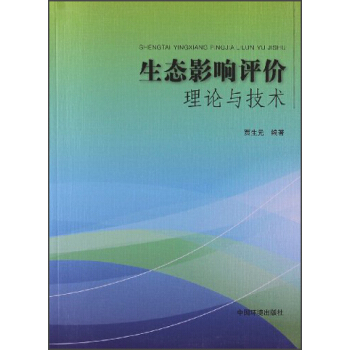
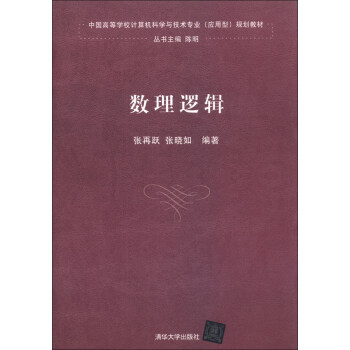

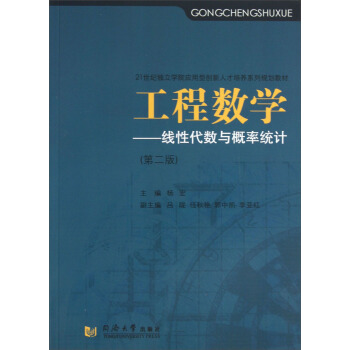
![数学分析教程(下册) [Mathematics] pdf epub mobi 电子书 下载](https://pic.tinynews.org/11375627/rBEhWFLBB9cIAAAAAAhGOV-X-BcAAHZiQI1tSsACEZR309.jpg)


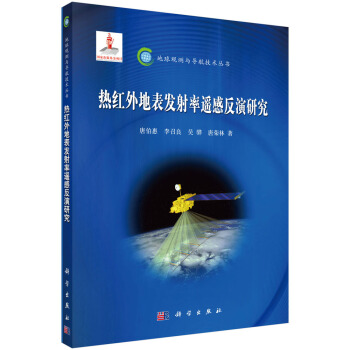

![实用蜚蠊彩色图鉴 [Cockroach] pdf epub mobi 电子书 下载](https://pic.tinynews.org/11686876/556ecebdN74114699.jpg)
![生命的解放/生态文明决策者必读 [The Liberation of Life] pdf epub mobi 电子书 下载](https://pic.tinynews.org/11714809/5588b746Na8711fcc.jpg)

![中国鸟类观察笔记 [China's Birds Observation Notes] pdf epub mobi 电子书 下载](https://pic.tinynews.org/11942059/5785ff90N59f6c8bd.jpg)
![物理和化学中的随机过程(第3版) [Stochastic Processes in Physics and Chemistry(Third edition)] pdf epub mobi 电子书 下载](https://pic.tinynews.org/10184613/35314018-bbf1-47d5-bbc4-c814c9717258.jpg)





